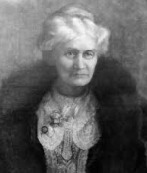Hannah Arnett
Dates unknown

I was born in 1733 and lived in Elizabeth, New Jersey, during the most uncertain days of the American Revolution. I was a Quaker woman, raised with quiet strength and firm convictions, and I never imagined the fate of my town would rest on my voice. But in December of 1776, as British forces swept across New Jersey and defeat hung heavy in the air, I made my stand.
That winter, the British offered amnesty to any colonists who would swear allegiance to the Crown. The offer was tempting. In Elizabeth, my husband and a group of town leaders gathered in our home to discuss it. They were men torn between survival and loyalty, men who had tasted loss and feared what might come next. I listened from the next room as they considered swearing allegiance to King George in exchange for the protection of their lives and property. I could not stay silent. I walked into the room and called them cowards to their faces. I told them liberty was worth more than comfort. I told my husband that if he gave in, I would leave him.
For a woman to defy her husband was rare. For a Quaker woman to threaten separation, risking expulsion from her meeting and community, was almost unthinkable. But I would not be silenced. And I would not stand by while the men around me gave up the cause. The men did not take the oath. The town did not fall back into the arms of the British. And though my story wasn’t widely told until after my death, it lived on.
In 1890, when women were denied entry to the Sons of the American Revolution, my name helped build something new. My great-grandson stood with the founders of a new organization, one that would honor the women who fought in quieter ways. The Daughters of the American Revolution was formed, and my words helped light the way.
